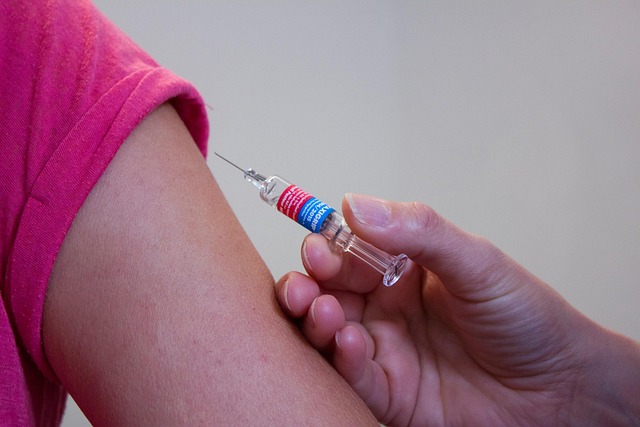Psoriasis Injections: What to Know About Treatment Options and Costs
Psoriasis injections are being used by individuals seeking relief from chronic skin conditions. Understanding when to consider this treatment, what types are available, and where to access care can help manage symptoms and improve quality of life with lasting results.

What Are Injectable Treatments for Psoriasis?
Injectable psoriasis treatments represent some of the most effective options for managing moderate to severe psoriasis. Unlike topical treatments that work at the skin’s surface, injectable medications work systemically by targeting specific components of the immune system that drive inflammation and trigger psoriasis symptoms.
The main types of injectable treatments include:
-
Biologics: These protein-based medications target specific parts of the immune system, such as tumor necrosis factor-alpha (TNF-alpha), interleukin-17 (IL-17), or interleukin-23 (IL-23). Common biologics include adalimumab (Humira), etanercept (Enbrel), secukinumab (Cosentyx), and ustekinumab (Stelara).
-
Non-biologic injectables: Medications like methotrexate can sometimes be administered as injections rather than pills, though this is less common for psoriasis treatment.
-
Corticosteroid injections: These may be used for localized treatment of psoriatic plaques but aren’t typically a primary treatment for widespread psoriasis.
How Do Psoriasis Injections Work?
Psoriasis develops when the immune system mistakenly attacks healthy skin cells, causing them to multiply too rapidly. Injectable biologics work by interrupting specific pathways in this inflammatory process.
Each class of biologics targets different components of the immune response:
-
TNF inhibitors (like adalimumab and etanercept) block tumor necrosis factor, an inflammatory protein.
-
IL-17 inhibitors (such as secukinumab and ixekizumab) target interleukin-17, a key cytokine in psoriasis inflammation.
-
IL-23 inhibitors (including guselkumab and risankizumab) block interleukin-23, which stimulates production of other inflammatory molecules.
Most injectable treatments for psoriasis need to be administered regularly, with frequency varying from once weekly to once every three months depending on the medication. Many patients see significant improvement within 8-12 weeks of starting treatment, with some achieving 75-90% clearance of psoriasis plaques.
Who Is a Good Candidate for Psoriasis Injections?
Not everyone with psoriasis needs injectable treatments. These therapies are typically reserved for people who:
-
Have moderate to severe psoriasis affecting a significant portion of their body
-
Haven’t responded adequately to topical treatments or conventional systemic medications
-
Have psoriasis that significantly impacts their quality of life
-
Have psoriatic arthritis along with skin symptoms
-
Cannot use certain other treatments due to contraindications
Healthcare providers carefully evaluate each patient before recommending injectable therapies. Important considerations include the severity and location of psoriasis lesions, medical history, previous treatments tried, and the presence of psoriatic arthritis.
Patients with certain conditions may not be good candidates for some injectable treatments, including those with:
-
Active tuberculosis or other serious infections
-
Multiple sclerosis or other demyelinating diseases (for TNF inhibitors)
-
Heart failure (for some biologics)
-
History of certain cancers
When and Where Are Psoriasis Injections Administered?
Most psoriasis injections are self-administered at home after proper training from healthcare providers. Depending on the specific medication:
-
Some require refrigeration and come in pre-filled syringes or auto-injectors
-
Injection sites typically include the abdomen, thigh, or upper arm
-
Frequency varies widely—some require weekly injections, while others might be monthly or even less frequent
For patients uncomfortable with self-injection, options include:
-
Having a family member or friend administer the medication after proper training
-
Receiving injections at a doctor’s office or infusion center (necessary for intravenous biologics)
-
Using newer auto-injector devices designed to make self-injection easier
Most patients require ongoing monitoring through regular blood tests and physician follow-ups to assess treatment effectiveness and watch for potential side effects.
What Is the Cost of Psoriasis Injections?
Injectable biologics rank among the most expensive treatments for psoriasis, with significant cost implications for patients and healthcare systems. Without insurance coverage, these medications can be prohibitively expensive.
| Medication | Brand Name | Approximate Annual Cost (Without Insurance) | Common Dosing Schedule |
|---|---|---|---|
| Adalimumab | Humira | $60,000-$80,000 | Every 1-2 weeks |
| Etanercept | Enbrel | $55,000-$75,000 | Weekly |
| Secukinumab | Cosentyx | $65,000-$85,000 | Monthly (after loading doses) |
| Ustekinumab | Stelara | $70,000-$90,000 | Every 12 weeks |
| Guselkumab | Tremfya | $70,000-$85,000 | Every 8 weeks |
Prices, rates, or cost estimates mentioned in this article are based on the latest available information but may change over time. Independent research is advised before making financial decisions.
Fortunately, several options exist to make these treatments more affordable:
-
Insurance coverage: Most private health insurance plans, Medicare Part D, and Medicaid programs provide coverage for biologics, though often with prior authorization requirements and significant copays.
-
Manufacturer assistance programs: Nearly all biologic manufacturers offer patient assistance programs that can significantly reduce out-of-pocket costs for eligible patients.
-
Biosimilars: FDA-approved biosimilar versions of some biologics (similar to generics) are becoming available at lower costs, such as biosimilars for adalimumab.
-
Clinical trials: Participating in clinical trials for new psoriasis treatments can sometimes provide access to medications at no cost during the study period.
It’s important to discuss treatment costs with healthcare providers and insurance representatives before beginning any injectable therapy.
What Should You Consider Before Starting Psoriasis Injections?
While injectable treatments offer significant benefits for many psoriasis patients, they require careful consideration:
Benefits:
-
Can provide dramatic skin clearing when other treatments fail
-
May work more quickly than some other treatments
-
Can treat both skin symptoms and psoriatic arthritis
-
Often require less frequent dosing than daily topical treatments
Potential concerns:
-
Risk of serious infections due to immune system suppression
-
Regular monitoring through blood tests and doctor visits
-
Long-term commitment to treatment
-
Potential for injection site reactions
-
Higher cost than many other psoriasis treatments
Before starting injectable therapy, patients should discuss their complete medical history with their healthcare provider, including any past infections, vaccination status, cancer history, and other health conditions.
This article is for informational purposes only and should not be considered medical advice. Please consult a qualified healthcare professional for personalized guidance and treatment.




